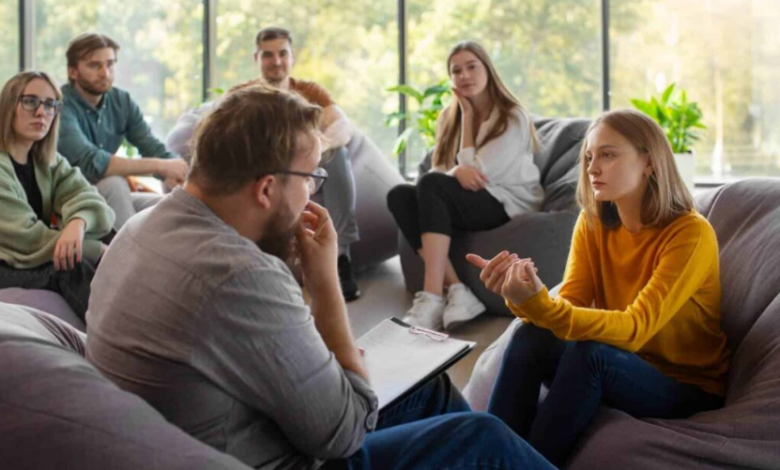Group Counseling: A Path to Healing Through Connection

When it comes to improving mental health, group counseling offers a powerful way to foster growth, connection, and emotional resilience. This therapeutic approach brings individuals together to share experiences, process emotions, and build coping strategies in a safe and structured environment. Whether you are struggling with anxiety, depression, trauma, or substance use recovery, group counseling can be an effective and empowering step toward healing.
What Is Group Counseling?
Group counseling is a type of therapy where several individuals meet together under the guidance of a licensed therapist. Unlike individual therapy, group counseling leverages the power of shared experiences to create a supportive environment where participants can learn from one another. Group sessions typically include open discussion, therapeutic activities, and skill-building exercises that focus on improving emotional health and relationships.
Benefits of Group Counseling
There are many unique benefits to participating in group counseling:
- Peer Support: Hearing others share similar struggles reduces feelings of isolation and helps participants feel understood.
- Improved Communication Skills: Speaking and listening within a group builds confidence and teaches empathy.
- New Perspectives: Learning from others’ experiences can reveal new coping strategies and encourage personal growth.
- Accountability: Regularly attending sessions keeps participants engaged and motivated to make progress.
- Cost-Effective: Group counseling is often more affordable than individual therapy, making mental health support more accessible.
Types of Group Counseling
Group counseling can take many forms, depending on the goals of participants and the expertise of the facilitator. Some common types include:
- Support Groups: Designed for people facing similar challenges such as grief, addiction recovery, or chronic illness.
- Psychoeducational Groups: Focused on teaching participants about mental health topics and strategies for coping with stress, anxiety, or emotional triggers.
- Interpersonal Process Groups: Encourage participants to explore relationships and practice new communication patterns.
- Skills Development Groups: Teach practical skills like mindfulness, stress reduction, and emotional regulation.
- Cognitive Behavioral Therapy (CBT) Groups: Help members identify negative thought patterns and practice healthier ways of thinking and behaving.
See also: Virtual Counseling Sessions: Accessible and Effective Mental Health Support
Common Activities in Group Counseling
Therapists use various activities to keep sessions engaging and effective.
- Icebreaker Exercises: Activities such as “Two Truths and a Lie” help members feel comfortable sharing.
- Emotional Check-Ins: Each member briefly shares how they are feeling at the beginning of a session.
- Role-Playing Scenarios: Practicing real-life conversations and challenging situations builds confidence.
- Journaling Exercises: Writing about thoughts, feelings, or goals allows participants to gain self-awareness.
- Mindfulness Techniques: Guided breathing or meditation helps reduce anxiety and centers participants before discussion.
- Group Problem-Solving: The group works together to brainstorm solutions to one member’s current challenge.
Who Can Benefit from Group Counseling
Group counseling is an excellent choice for people who want to improve their emotional well-being while connecting with others who understand their struggles. It can help those dealing with:
- Anxiety, depression, or mood disorders
- Substance use or behavioral addictions
- Grief and loss
- Relationship difficulties
- Trauma or major life transitions
- Low self-esteem or difficulty expressing emotions
What to Expect During a Group Counseling Session
Group counseling sessions are typically structured but flexible enough to allow meaningful conversation. Most sessions begin with a check-in, followed by a focus topic or therapeutic activity. Participants take turns sharing their thoughts and listening to others. The session may conclude with reflection, feedback, or goal-setting for the week ahead.
Addressing Common Concerns
Many people are hesitant to try group counseling because they feel nervous about sharing personal information with strangers. These feelings are natural, and therapists work hard to create a safe, respectful, and confidential environment. Over time, most participants find that they build strong, trusting relationships within the group, and the sense of connection becomes one of the most rewarding aspects of therapy.
Role of the Counselor in Group Sessions
The therapist plays a crucial role in guiding discussions, ensuring everyone has a chance to speak, and maintaining a positive and respectful atmosphere. They may introduce educational topics, facilitate exercises, and encourage participants to explore their emotions and experiences more deeply.
Combining Group Counseling with Individual Therapy
While group counseling is highly effective on its own, many people find that combining it with individual therapy provides the most comprehensive care. Individual therapy allows for private, one-on-one exploration of deeper issues, while group sessions offer social support and real-time practice for interpersonal skills.
Virtual Group Counseling Options
With online therapy becoming more widely available, many people can now join virtual group counseling sessions from the comfort of home. These sessions follow a similar format to in-person groups, offering opportunities for connection, skill-building, and emotional support no matter where participants are located.
Final Thoughts
Participating in group counseling can be an important step toward personal growth, emotional balance, and better mental health. These sessions provide an opportunity to connect with others, learn practical coping strategies, and gain support in a structured and compassionate environment. Over time, group counseling can lead to improved self-awareness, stronger communication skills, and a lasting sense of empowerment. Programs like Treat Mental Health Washington provide expertly facilitated group counseling sessions that make it easier for individuals to take the next step on their path to healing.







